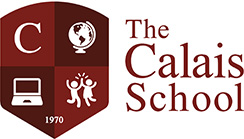Reading is much more than a fun and imaginative activity. Deficits in literacy can directly impact a student’s personal, academic and professional success. The Calais School’s reading program is designed to support students who may be struggling with decoding, reading comprehension and fluency. Our Orton-Gillingham trained reading specialists conduct small group and individualized lessons, which incorporate a systematic, explicit, multi-sensory, and language-based approach to teaching reading.
Individualized Reading Programs
Students requiring individualized reading instruction are assessed for reading strengths and weaknesses, including dyslexia, and a program is designed to meet their unique needs. Reading remediation is provided in a variety of settings including pull-out and push-in to ensure individual progress. Teachers and certified staff also have a variety of reading programs and approaches available to them including:
- Read 180
- The Units of Study for Teaching Reading
- Fundations
- Raz Kids
Our school library provides students with a wide variety of reading materials at various levels. Students also have the option of working with online interactive reading programs using iPads, laptops and tablets.
Animal Assisted Education (AAE) Integration
Dogs are great listeners! The presence of our Animal Assisted Intervention therapy dogs during reading remediation sessions, offer students companionship and support as they work to improve their vocabulary, comprehension skills, and memory skills. Therapy dogs and their handlers work alongside teachers or reading specialists to help students work on skills like decoding and fluency. Students may find reading aloud to the dogs much easier and safer than reading in front of their peers or other people.
Calais Reading Lessons: An Inside Look
Reading lessons are highly interactive with a focus on metacognitive strategies such as monitoring comprehension, asking questions during reading, re-reading for word meaning and understanding, and making connections to characters, emotions, and real life experiences. Our reading specialists work with students on comprehension using a variety of activities including finding the main idea, making inferences, discerning fact versus opinion, understanding the author’s purpose, sequencing narrative, and summarizing texts.
Over the course of a reading program, each student accumulates a portfolio of work that may contain a word study journal, reader response journal, dialogue journal, and the materials he or she has worked on in their areas of weakness. The portfolio provides tangible evidence of progress and achievement throughout the school year.
 973-884-2030
973-884-2030 
